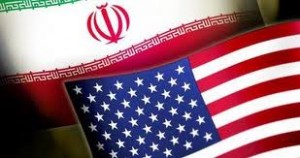 The United States is at a crossroads over the Iran nuclear deal. In his first congressional testimony since last month�s Geneva agreement the US Secretary of state faced skeptical lawmakers pushing for new sanctions on the Islamic Republic. John Kerry urged Congress members to hold off on drastic measures while the negotiators are crafting a comprehensive agreement to curb Iran�s nuclear program.
The United States is at a crossroads over the Iran nuclear deal. In his first congressional testimony since last month�s Geneva agreement the US Secretary of state faced skeptical lawmakers pushing for new sanctions on the Islamic Republic. John Kerry urged Congress members to hold off on drastic measures while the negotiators are crafting a comprehensive agreement to curb Iran�s nuclear program.Meanwhile Iran�s Foreign Minister Mohammad Zarif said last week if Congress adopts new sanctions the international efforts would fall flat.
The deal will be dead as Tehran refuses to negotiate under duress. In an interview to Voice of Russia, Mehran Kamrava, Professor and Director of the Center for International and Regional Studies at Georgetown University's School of Foreign Service in Qatar, talked about the issue in detail.
Mr Kamrava firstly stated that the tensions between Iran and the US have been going on for 35 years.
"Policymakers in Iran and the US, as well as across the Middle East and particularly in the Persian Gulf have been accustomed to this level of tension between Iran and the US. So, we are looking at generations of policymakers that have come and gone, and yet the tension has remained consistent," Mr Kamrava stated.
"Now, that there is a window of opportunity and there is also a political will, both in Tehran and in Washington DC, if not necessarily to improve the relations, but to at least stop the tensions, then I think there is a fair amount of skepticism, particularly when it comes to the countries of the Gulf Cooperation Council. These countries are worried about being abandoned by the US. For the last 35 years they have capitalized on these tensions between Iran and the US militarily, politically and diplomatically. And so, they are worried about losing some of their leverage if Iran and the US improve their relations," Mr Kamrava expanded.
"For the last 8 years the international community has been accustomed to the persona and the rhetoric of Ahmadinejad. So, I think their skepticism comes from the fact: is this a change in style from Ahmadinejad to Rouhani or is this a change in substance. I think the international community is much more comfortable with the simplified image of Ahmadinejad rather than the new one and in many ways much more complex phenomenon that Rouhani represents," Mr Kamrava explained
As far as the possibility of the Five plus One group succeeding in crafting a long-term agreement is concerned, Mr Kamrava said it will be seen over the coming months.
"The next months will be very critical in confidence building. And if at the end of the interim period we have a higher level of confidence between Iran and the Obama administration, I think the deal will hold," Mr Kamrava said.
Commenting on lifting of sanctions, Mr Kamrava said, "For the country it means almost an immediate relief for the middle class. The Iranian middle class was bearing the burden of the sanctions. And also many in Iran were seeing the sanctions in human rights terms. This also provides a window of opportunity, particularly in the petro-chemical sector, for oil companies to go and invest into the Iranian oil and gas sector."
By Voice Of Russia
The Iran Project is not responsible for the content of quoted articles.










